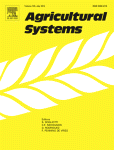Artículo de investigación: Comparing conventional and organic citrus grower efficiency in Spain
 Autor: Mercedes Beltrán-Esteve y Ernest Reig-Martínez
Autor: Mercedes Beltrán-Esteve y Ernest Reig-Martínez
Título: Comparing conventional and organic citrus grower efficiency in Spain
Fuente: Agricultural Systems
Resumen: This paper compares the organic and conventional citriculture systems in Spain from the perspective of their technical efficiency. The primary objective of the research is to compare the relative efficiency of these two systems in relation to a metafrontier that envelops both technologies. In addition, the article analyses how efficient each growing system is at using its own technology, that is, when farms’ efficiency is benchmarked in relation to the best practices in their group. Contrary to conventional practice, farms’ performance is analyzed in terms of specific growing tasks: soil and plant cover management, pruning, fertilization and phytosanitary treatments. The results obtained highlight that both organic and conventional orchards would be able to achieve substantial global cost savings if they reached the maximum level of efficiency that their technological restrictions permit. They also reveal that the gap between the levels of efficiency on the frontier of each of the systems and the metafrontier is much wider in the case of organic citriculture than in conventional growing systems. Consequently, there is evidence that the limitations imposed on organic citriculture by regulatory and technological determinants have a significant impact on the relative efficiency of organic orchards in citrus fruit production, with potential consequences as regards their financial viability.
Ver artículo
Cómo citar este artículo:
Beltrán, M. y E. Reig (2014): "Comparing conventional and organic citrus grower efficiency in Spain", Agricultural Systems, 129, July, pp. 115-123.






